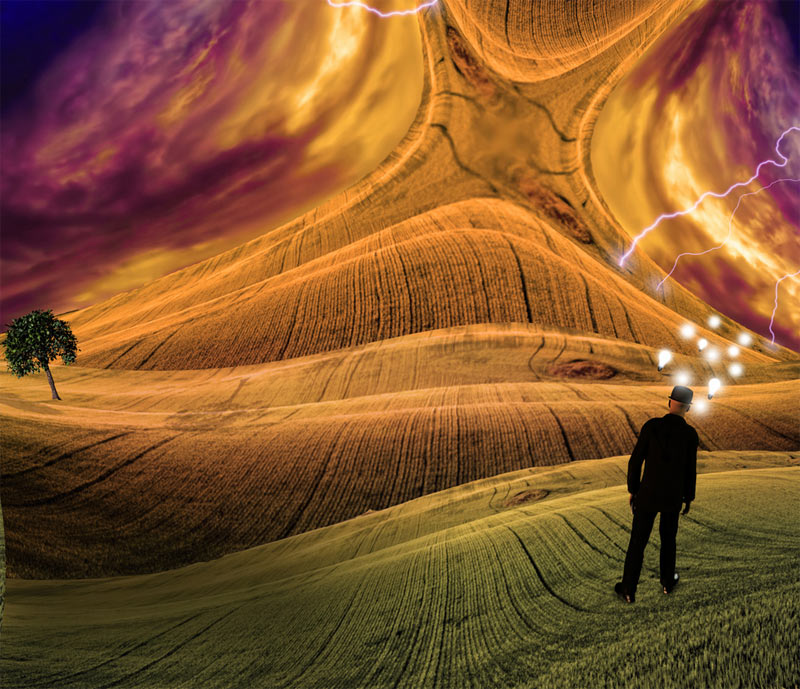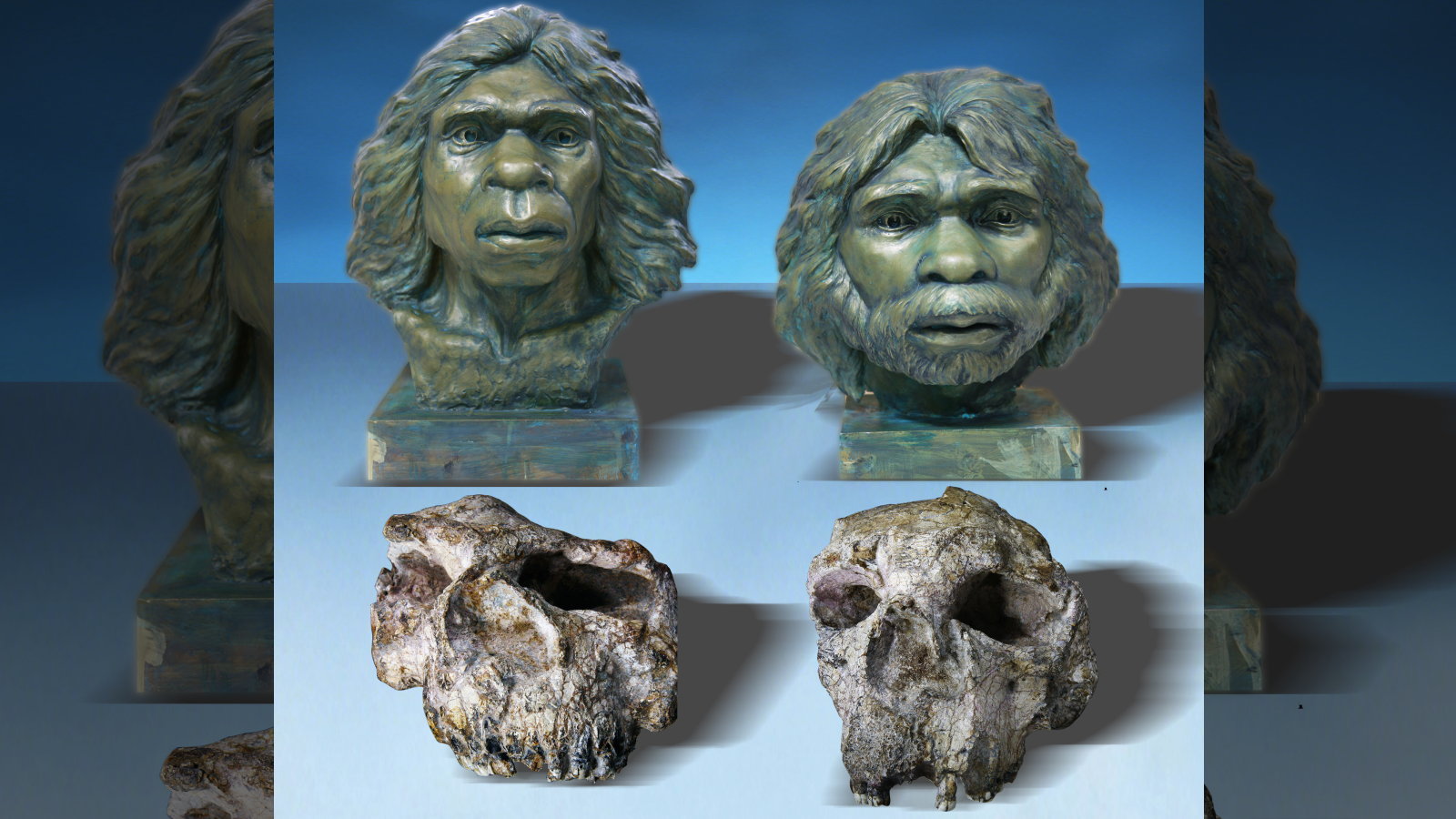Reality Check: Is Our Universe Real?

Get the world’s most fascinating discoveries delivered straight to your inbox.
You are now subscribed
Your newsletter sign-up was successful
Want to add more newsletters?

Delivered Daily
Daily Newsletter
Sign up for the latest discoveries, groundbreaking research and fascinating breakthroughs that impact you and the wider world direct to your inbox.

Once a week
Life's Little Mysteries
Feed your curiosity with an exclusive mystery every week, solved with science and delivered direct to your inbox before it's seen anywhere else.

Once a week
How It Works
Sign up to our free science & technology newsletter for your weekly fix of fascinating articles, quick quizzes, amazing images, and more

Delivered daily
Space.com Newsletter
Breaking space news, the latest updates on rocket launches, skywatching events and more!

Once a month
Watch This Space
Sign up to our monthly entertainment newsletter to keep up with all our coverage of the latest sci-fi and space movies, tv shows, games and books.

Once a week
Night Sky This Week
Discover this week's must-see night sky events, moon phases, and stunning astrophotos. Sign up for our skywatching newsletter and explore the universe with us!
Join the club
Get full access to premium articles, exclusive features and a growing list of member rewards.
Perhaps our human senses are deceiving us — maybe existence is an illusion, and reality isn't real.
The idea that everything we know is merely a construction of our minds is investigated in the next episode of the Science Channel program "Through the Wormhole," hosted by Morgan Freeman. The episode premieres Wednesday (July 17) at 10 p.m. EDT.
"What is real?" Freeman asks in the show. "How can we be certain that the universe around us actually exists? And how can we know that the world we see matches what anyone else experiences?"
Human senses are fallible. What people think they perceive is actually filtered and processed by the brain to construct a useful view of the world. Normally, this filtering is helpful, allowing people to sort out important information from the barrage of data that comes in every minute from their environment.
But this filtering ability can become a weakness, as it often does when we're watching a magician.
"A good magician will tap into universal brain processes that underlie perception," said Lawrence Rosenblum, a psychologist at the University of California, Riverside and a magician himself. For instance, a magician often directs the audience's gaze to one hand while he does something with the other. [Eye Tricks: Gallery of Visual Illusions]
But Rosenblum doesn't see the human tendency to fall for such misdirection as evidence that all of reality exists only in our minds. "Our perceptual system can be fooled, but I do not take that at all to mean that we're constructing reality," he told LiveScience.
Get the world’s most fascinating discoveries delivered straight to your inbox.
All in the mind
As members of society, people create a form of collective reality. "We are all part of a community of minds," Freeman says in the show.
For example, money, in reality, consists of pieces of paper, yet those papers represent something much more valuable. The pieces of paper have the power of life and death, Freeman says — but they wouldn't be worth anything if people didn't believe in their power.
Money is fiction, but it's useful fiction.
Another fiction humans collectively engage in is optimism. Neuroscientist Tali Sharot of University College London studies "the optimism bias": people's tendency to generally overestimate the likelihood of positive events in their lives and underestimate the likelihood of negative ones.
In the show, Sharot does an experiment in which she puts a man in a brain scanner, and asks him to rate the likelihood that negative events, such as lung cancer, will happen to him. Then, he is given the true likelihood.
When the actual risks differ from the man's estimates, his frontal lobes light up. But the brain area does a better job of reacting to the discrepancy when the reality is more positive than what he guessed, Sharot said.
This shows how humans are somewhat hardwired to be optimistic. That may be because optimism "tends to have a lot of positive outcomes," Sharot told LiveScience. Optimistic people tend to live longer, healthier, more successful lives, she said, and the act of positive thinking can be a self-fulfilling prophecy. "If you think you're more likely to get promoted, you're more likely to put in more effort and work long hours," Sharot said.
But this slightly distorted view of the world can also be a weakness — a person might continue to smoke because they don't expect to get lung cancer, for example. Being more realistic is important in some cases, Sharot cautioned.
Physical reality
Physicists look beyond the human mind for external reality, but even that reality isn't absolute truth. Fundamental reality as scientists understand it is based on quantum mechanics, a realm where all manner of strange things occur. An electron can behave as either a particle or a wave, depending on how one measures it. And scientists can measure either a particle's position or its momentum at any given time, but never both.
"Quantum mechanics is simply the best theory we've ever developed," theoretical physicist David Tong, of Cambridge University, says in the show. But so much of this reality is by definition unknowable. Another physicist featured in the show, Steven Nahn of MIT, says "I absolutely believe reality is a real thing, but that does not mean we understand it." Nahn was part of the team of scientists who found evidence in 2012 for the Higgs boson, the particle that gives other particles their mass.
The universe may turn out to have more dimensions than we know about, where fundamental forces behave very differently than how we perceive them. For example, gravity is the weakest of the four fundamental forces, but in other dimensions, it could be just as strong. "Things would be very different in this hidden reality," Freeman says. [6 Weird Facts About Gravity]
The universe could even be a kind of hologram. The amount of information that can be stored in a region of space is proportional to the region's surface area, rather than its volume – a property known as the holographic principle. One possible implication is that reality is actually two-dimensional, and the three-dimensional world is merely an illusion, which would explain some of the wackiness of quantum mechanics.
All of these views of the world — those that we perceive in our minds, and those that physicists discover in the universe — are flavors of reality. What humans perceive as reality may be no more than an illusion. But in the end, maybe that doesn't matter.
Follow Tanya Lewis on Twitter and Google+. Follow us @livescience, Facebook & Google+. Original article on LiveScience.com.

 Live Science Plus
Live Science Plus










